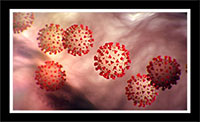This document provides guidance for dine-in food facilities, including restaurants, tasting rooms, wineries, breweries and distilleries to support a safe environment for customers and staff as services are expanded for dining in Sonoma County. This document is not intended as a substitute for Health and Safety Code guidelines for safe food handling and should be incorporated into a facility’s best management practices for food safety.
- Workplace Specific Plan
- Complete the Food Facility Operating Checklist (Attachment A) for your facility.
- Adhere to the Operating Procedures Document, operating guidelines as listed below and food facility regulations as established in California Health and Safety Code (CalCode).
- Food Handlers Workplace Safety
- Ensure all employees have been told not to come to work if sick.
- Conduct a health survey and temperature scan with each employee prior to the beginning of each shift.
- Require face coverings to be worn by all employees and train all employees on the proper fit and practices for its use. Facial coverings must cover nose and mouth and fit closely against the face.
- Ensure a cleaning and disinfection schedule for employee restrooms and breakrooms is implemented and adhered to. At a minimum, regular sanitation should be done hourly and more frequently as needed.
- Ensure all employees have been trained on proper handwashing procedures, understand the importance of handwashing and adhere to mandatory hand washing practices.
- Provide a copy of the COVID-19 Restaurant Operating Procedures to each employee.
- Social Distancing
- Space tables being utilized for seating a minimum of six feet apart to ensure that all customers are able to maintain a six foot distance between tables
- Ensure social distancing is adhered to while customers are waiting to be seated and during ordering and pick-up of food.
- Limit tables to not more than 10 people, and all must be from the same household.
- Encourage reservations or advise people to call in advance to confirm seating/serving capacity.
- Consider a phone reservation system that allows people to queue or wait in cars to enter only when a phone call, text, or other method, indicates that a table is ready.
- Do not seat tables until all members of the party have arrived and can be seated together at one time.
- Public Protection/Sanitization
- No food items such as condiment bottles, salt and pepper shakers, or breadbasket can have multiple contacts or be shared between tables.
- No self-service buffets, salad bars, condiment bars, etc.
- No self-service machines, such as soda, coffee and frozen yogurt machines.
- Non-food items that may be used by multiple customers must be disinfected between each use or modified to be a single service item, such as a disposable paper menu.
- All utensils and food-ware must be properly washed, rinsed and sanitized. Verify the required contact time (the time the utensils must be submerged in the sanitizer) for the sanitizer to be effective. If this cannot be reasonably accommodated, only single-service utensils or food-ware should be used.
- Frequently disinfect high contact touch points, such as phones, door handles, credit card terminals, etc. using a disinfectant that is effective against Coronavirus.
- When feasible, provide disinfection wipes or hand sanitizer (at least 60% alcohol) for customers at tables.
- When feasible, use equipment that has touch free motion detectors, such as hands-free soap and towel dispensers.
- Disinfect restrooms every hour and as needed.
- Designate a team member per shift to oversee the additional sanitization and disinfection procedures.
- Limit the number of employees who serve individual parties. Consider assigning the same employee to each party for entire experience (as long as that does not conflict with mandatory meal and rest break laws).
- Limit entrance points into the dining area and create pathways for customers that maintain the 6 foot distancing guidelines.
- Tasting Rooms, Wineries, Breweries and Distilleries
- If your facility has a current food facility permit with Environmental Health to provide meal services, and you are not making any changes to your menu, please follow the guidance above. If you currently do not have a food facility permit with Environmental Health, or are changing your menu and would like more information on obtaining appropriate permits to provide meal services, please contact Environmental Health at EH@Sonoma-County.Org or call (707) 565-6565.
- Tasting rooms, wineries, breweries and distilleries that do not provide a meal service are not allowed to reopen for tasting under the Amendment No. 3 to Order of the Health Officer (C19-09). Another permitted food service can be utilized provided both businesses follow the guidance and alcohol is only sold in the same transaction. A permit to contract outside meal service will require a food facility permit from Environmental Health.

 En Español
En Español